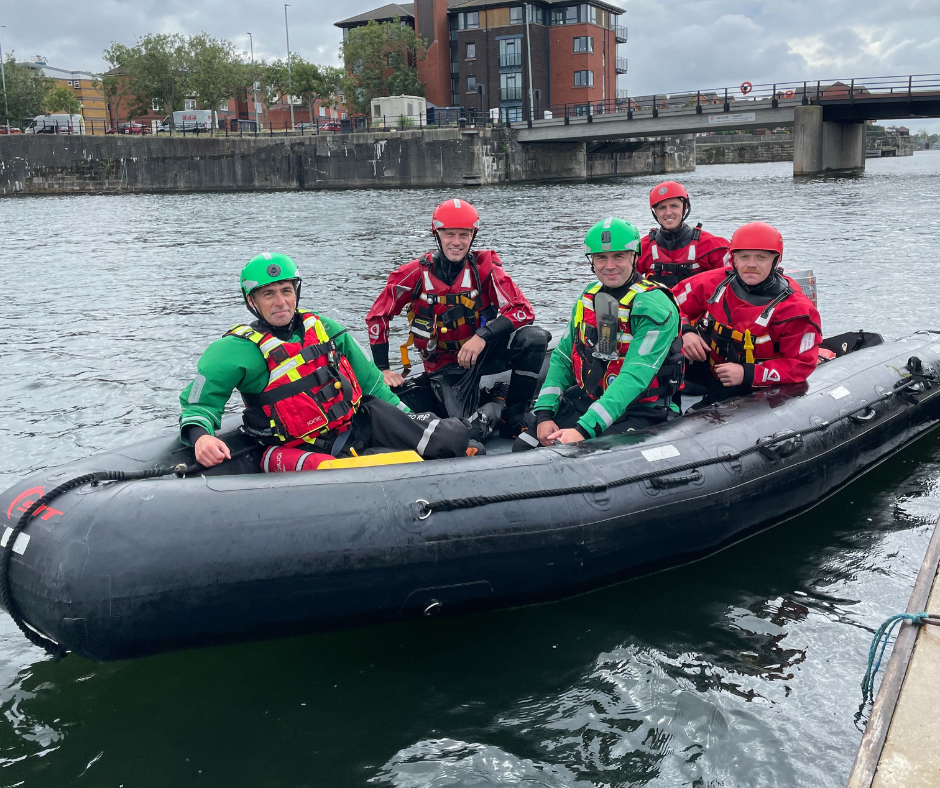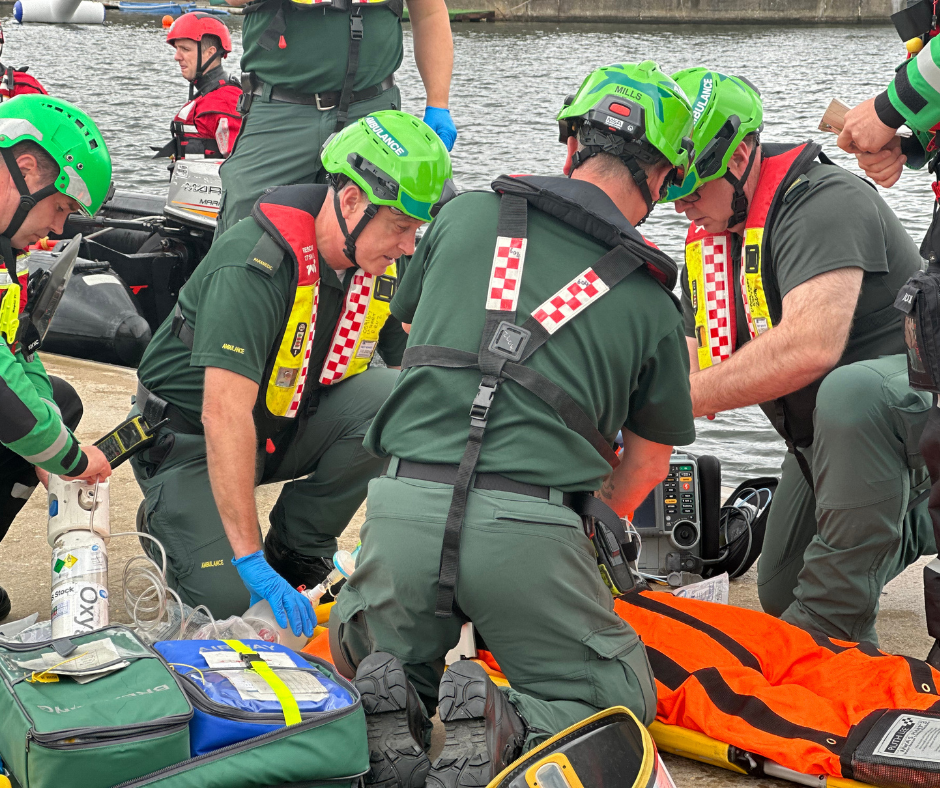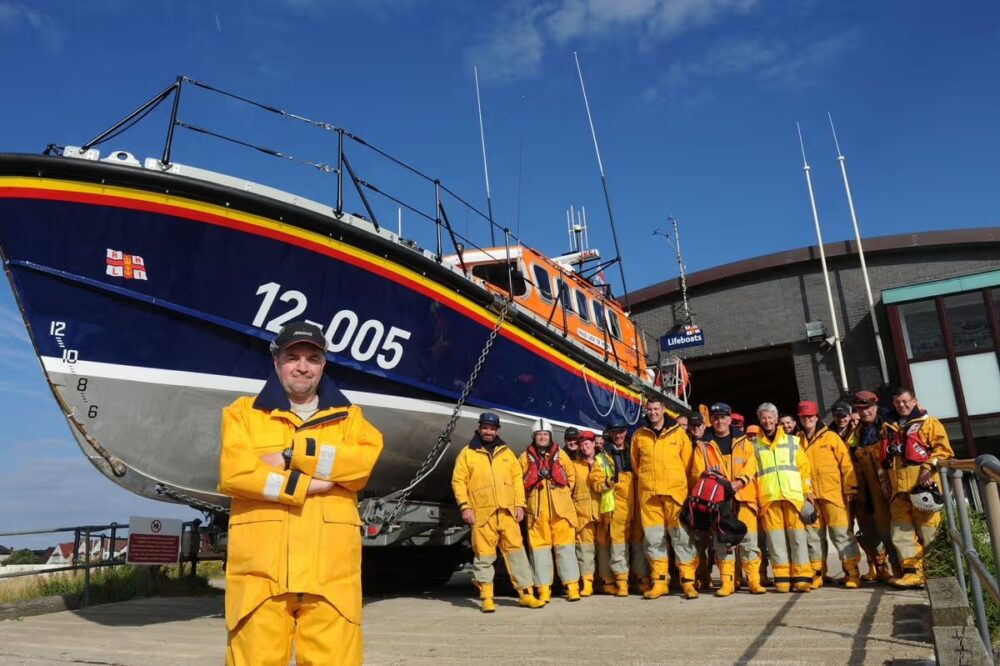
Liverpool News
North West Ambulance and fire service stage rescue demo to warn about dangers of open water swimming
3 years ago

If you see someone getting into difficulty in open water, please call 999 immediately.
North West Ambulance Service (NWAS) and Merseyside Fire and Rescue Service (MFRS) took to the Queen’s Dock in Liverpool today to demonstrate how dangerous swimming in open water can be.
Paramedics from NWAS’ Hazardous Area Response Team (HART) – which is made up of specially trained paramedics who attend incidents that have the potential to be more dangerous – alongside firefighters from MFRS Search and Rescue Team (SRT) staged a water rescue to show how open and unsupervised water is not safe to go in, even for the most experienced swimmers.
The emergency teams worked together to demonstrate the various rescue techniques from using a MFRS inflatable boat (RIB) typically used when somebody is further away from dry land, to reach poles and throw lines which are used when a person is in an awkward position or is close to dry land.
Last summer alone, between June and August 2022 NWAS attended 81 incidents where people had gotten into trouble in open water or drowned. Since the beginning of 2023, the trust has already attended 64 open-water incidents, including some tragic and fatal drownings where young teenagers lost their lives across the region.

Rivers, lakes, reservoirs and the open sea can seem very inviting during the summer months, but they can take lives. Acting HART Operations Manager Dave Berry, said: “Our HART paramedics have been trained to provide life-saving medical care in complex and challenging environments. We attend many different high-risk incidents including situations where people have entered open water and got into difficulty, resulting in rescue attempts to get them to safety.
“It can be difficult to perceive the potential risks posed by water, where hazards are often hidden from view and you can’t predict how cold the water might be. As appealing as getting into cold water may sound on a hot day, it can cause cold water shock which includes loss of control of breathing and movement, which can quickly lead to people getting into serious difficulties. Swimming in cold water can quickly reduce the stamina of even the strong swimmers and it is heartbreaking for our staff to know that warmer weather and school holidays will often lead to avoidable tragedies when people enter open water.
“We are here for you, and we have many techniques that will help a person in the water, but time is of the essence in these types of emergencies and water can be very unpredictable so our advice would always be to refrain from going in open water.”
MFRS Group Manager Chris Barrett, said “Accidental drowning is one of the leading causes of death in the United Kingdom. In 2020, there were 254 accidental drownings in the UK, including five in Merseyside. Please do not enter the water particularly if you’ve had any alcohol – over 25% of accidental drownings in 2020 involved alcohol and or drugs. Alcohol can impair your judgement, reactions, and ability to swim. Look after your mates – stay away from water if you’ve been drinking.
“In an emergency never enter the water to try and help a person or animal. You could get into difficulty yourself. Instead, dial 999 and use any water rescue equipment that is available.”
We’re asking the public to think carefully, steer clear of open water and to learn the Royal National Lifeboat Institution’s ‘FLOAT to live’ advice. If you see someone getting into difficulty in open water, please call 999 immediately.
If you do get into trouble, the advice from Royal Lifeboat Institution is ‘FLOAT to live’
F: FIGHT – your instinct to panic or swim hard
L: LEAN – back in the water to keep airway clear
O: OPEN – your body up pushing your stomach up
A: ACTIONS – gently move hands and feet to keep afloat
T: TIME – in 60-90 seconds, you’ll be able to adjust and control your breathing.









 Subscribe
Subscribe Follow Us
Follow Us Follow Us
Follow Us Follow Us
Follow Us Follow Us
Follow Us Follow Us
Follow Us











